
Nazareth: The Gem of Galilee
Nazareth, the largest city in the Northern District of Israel, is steeped in history and brimming with cultural significance. Known as the childhood home of Jesus, it is a focal point for Christian pilgrims from all over the world. The old city's narrow, winding streets lead visitors to ancient churches, bustling markets, and historic sites that tell the story of this ancient town. The Basilica of the Annunciation is a must-see landmark in Nazareth. It is said to be built over the cave where the Angel Gabriel appeared to Mary. The modern church, completed in 1969, is a stunning piece of architecture and a spiritual hub for many. Nearby, you can explore the Church of St. Joseph, traditionally believed to be the site of Joseph's carpentry workshop. Nazareth isn't just about religious history; it's also a vibrant modern city. The local markets are full of life, offering a wide array of spices, fruits, and handmade crafts. The city's culinary scene is a delightful mix of Middle Eastern flavors, with plenty of restaurants serving traditional dishes like falafel, hummus, and baklava. The surrounding area offers beautiful natural landscapes, with the rolling hills of Galilee providing a perfect backdrop for hiking and exploring. A visit to the ancient city of Sepphoris, located just a few kilometers away, gives a glimpse into the Roman and Byzantine past of the region.
Local tips in Nazareth
- Visit the Basilica of the Annunciation early in the morning to avoid crowds.
- Wear comfortable walking shoes; the old city's streets are narrow and often steep.
- Check local market days to experience the vibrant marketplace at its best.
- Try traditional dishes at local restaurants to get a taste of authentic Middle Eastern cuisine.
- Explore the nearby town of Sepphoris for a look at ancient Roman and Byzantine ruins.
Nazareth: The Gem of Galilee
Nazareth, the largest city in the Northern District of Israel, is steeped in history and brimming with cultural significance. Known as the childhood home of Jesus, it is a focal point for Christian pilgrims from all over the world. The old city's narrow, winding streets lead visitors to ancient churches, bustling markets, and historic sites that tell the story of this ancient town. The Basilica of the Annunciation is a must-see landmark in Nazareth. It is said to be built over the cave where the Angel Gabriel appeared to Mary. The modern church, completed in 1969, is a stunning piece of architecture and a spiritual hub for many. Nearby, you can explore the Church of St. Joseph, traditionally believed to be the site of Joseph's carpentry workshop. Nazareth isn't just about religious history; it's also a vibrant modern city. The local markets are full of life, offering a wide array of spices, fruits, and handmade crafts. The city's culinary scene is a delightful mix of Middle Eastern flavors, with plenty of restaurants serving traditional dishes like falafel, hummus, and baklava. The surrounding area offers beautiful natural landscapes, with the rolling hills of Galilee providing a perfect backdrop for hiking and exploring. A visit to the ancient city of Sepphoris, located just a few kilometers away, gives a glimpse into the Roman and Byzantine past of the region.
When is the best time to go to Nazareth?
Iconic landmarks you can’t miss
Church of the Annunciation
Explore the Church of the Annunciation, a cornerstone of Christian faith and an architectural gem in the heart of Nazareth, Israel.
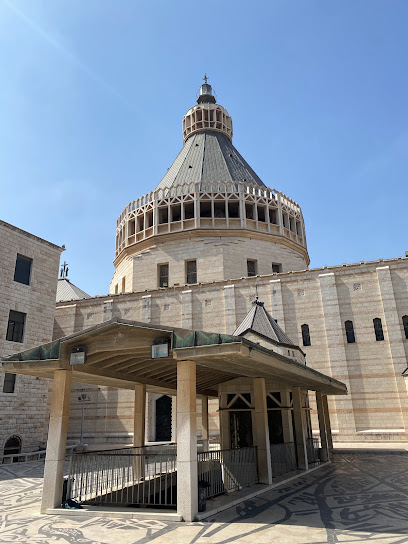
The Greek Orthodox Church of the Annunciation
Explore the enchanting Greek Orthodox Church of the Annunciation in Nazareth, a spiritual and historical gem rich in culture and artistry.
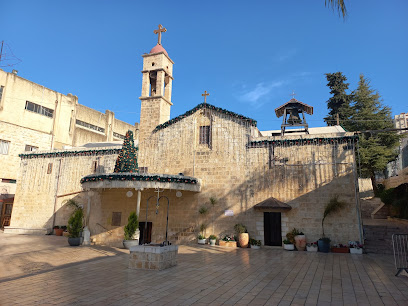
حلويات الصداقه Al Sadaqa
Experience the sweet flavors of Nazareth at Al Sadaqa, a charming dessert shop offering delectable pastries and rich coffee.
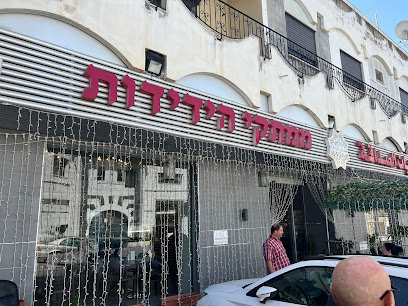
Nazareth Village
Experience ancient Galilee at Nazareth Village, an open-air museum showcasing life during the time of Jesus with interactive exhibits and knowledgeable guides.
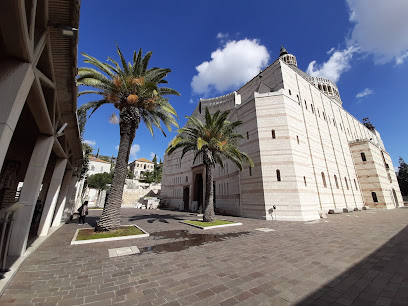
Tishreen
Experience the fusion of traditional Arab cuisine and modern sushi at Tishreen, a culinary gem in the heart of Nazareth.
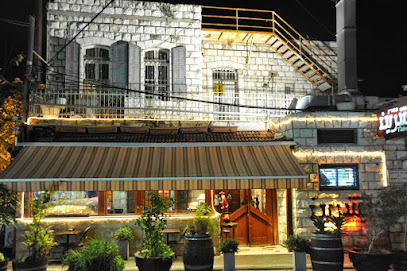
Mary’s Well
Experience the serene beauty and historical significance of Mary's Well in Nazareth, a must-visit landmark for every traveler.
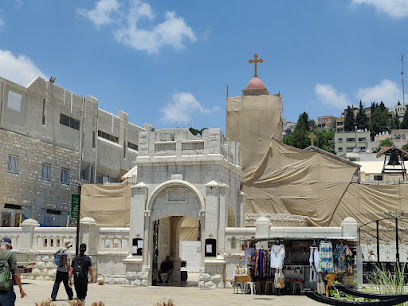
Alreda
Discover the authentic flavors of Nazareth at Alreda, where traditional Middle Eastern cuisine meets a warm and inviting atmosphere.
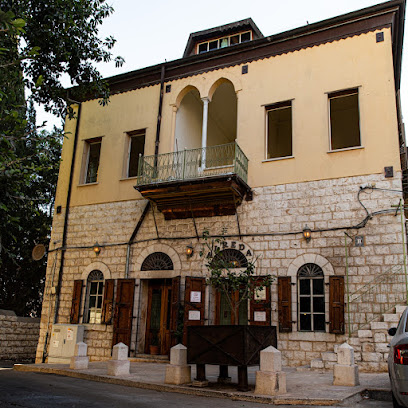
Fauzi Azar by Abraham
Discover the charm of Nazareth at Fauzi Azar by Abraham, where traditional hospitality meets modern comfort in a historic setting.

Hummos Afif Saig
Experience the authentic flavors of Nazareth at Hummos Afif Saig, a beloved Middle Eastern restaurant known for its exquisite hummus and warm hospitality.
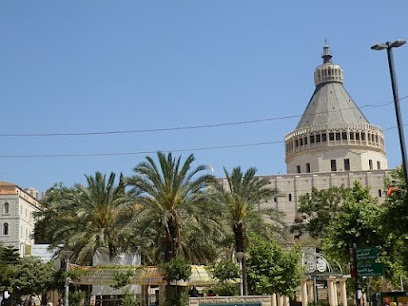
Basilica of Jesus the Adolescent
Explore the Basilica of Jesus the Adolescent in Nazareth, a stunning architectural masterpiece and a profound spiritual landmark rich in history and artistic beauty.
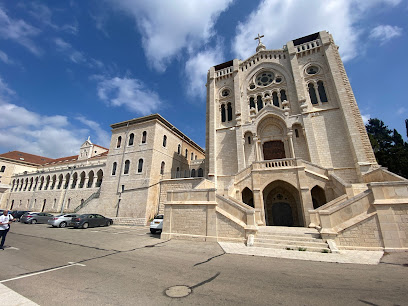
St. Joseph's Church
Explore the serene beauty and historical significance of St. Joseph's Church in Nazareth, a must-visit for every spiritual traveler.
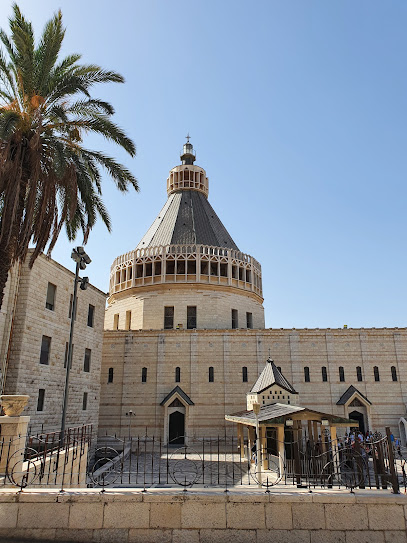
Michel House Boutique Hotel בית מישל بيت ميشيل
Experience the warmth of Nazareth at Michel House Boutique Hotel, where comfort meets local charm in a historic setting.
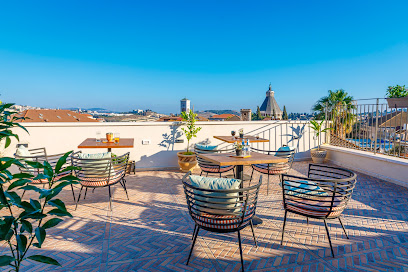
Casa Nova
Experience the heart of Nazareth at Casa Nova, a cozy hostel offering comfort, community, and culture in the city's vibrant center.

Villa Nazareth B&B
Discover the charm of Nazareth at Villa Nazareth B&B, where authentic experiences meet modern comfort in the heart of the city.

Liwan Culture Cafe
Discover Liwan Culture Cafe in Nazareth for authentic flavors and a cozy atmosphere perfect for tourists seeking a local experience.
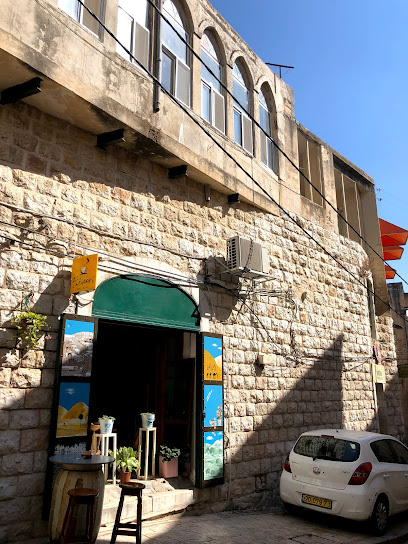
Unmissable attractions to see
Rosh HaNikra Grottoes
Explore the breathtaking Rosh HaNikra Grottoes in Israel, where stunning sea caves meet the beautiful Mediterranean coast.
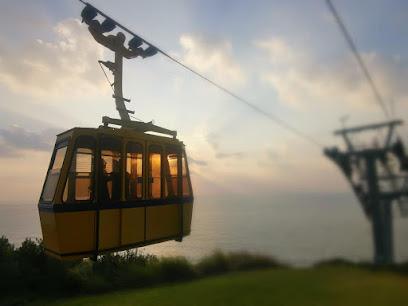
Ramat Hanadiv
Discover the serene beauty and rich history of Ramat Hanadiv, a memorial park in Zikhron Ya'akov, perfect for nature walks and cultural exploration.
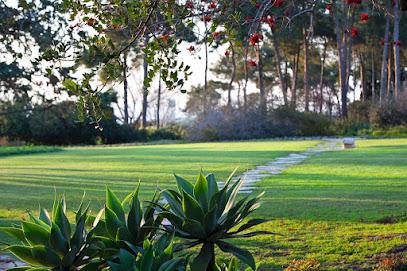
Yardenit
Discover the serene beauty and spiritual significance of Yardenit, the traditional baptismal site on the banks of the Jordan River, a must-visit for every pilgrim.
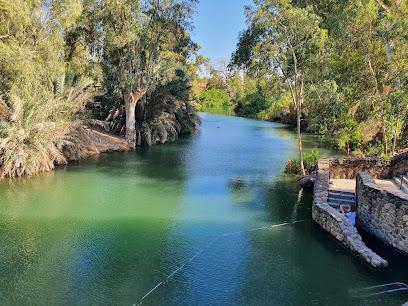
Mount Carmel National Park
Explore the enchanting landscapes and rich biodiversity of Mount Carmel National Park, a premier destination for hiking and outdoor adventure in Haifa, Israel.
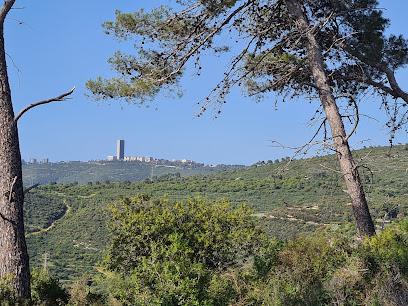
Church of the Annunciation
Explore the sacred beauty of the Church of the Annunciation in Nazareth, a must-visit for pilgrims and tourists alike.
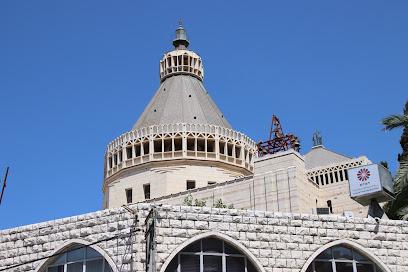
Tomb of Rabbi Meir
Discover the spiritual essence of Tiberias at the revered Tomb of Rabbi Meir, a must-visit pilgrimage site steeped in Jewish history and tradition.
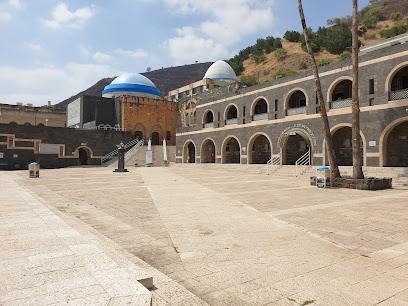
Knights' Halls, Old Akko
Discover the rich history of Old Akko at the Knights' Halls, a UNESCO World Heritage site showcasing stunning Crusader architecture.
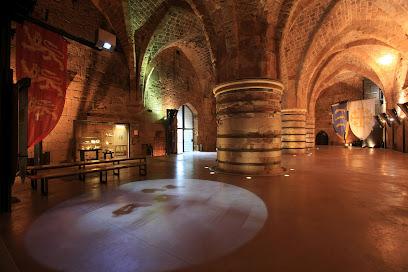
Beit She'an National Park
Explore Beit She'an National Park, a stunning archaeological site in Israel filled with ancient ruins, rich history, and breathtaking natural beauty.
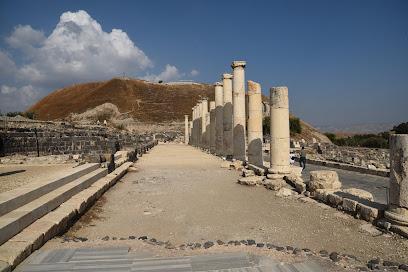
The Church of the Beatitudes
Discover the tranquil beauty and spiritual significance of the Church of the Beatitudes, a must-visit destination on the shores of the Sea of Galilee.
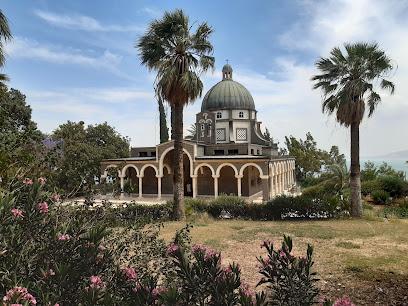
Keshet Cave
Explore the breathtaking Keshet Cave in Israel, a stunning natural attraction offering hiking adventures and rich historical significance.
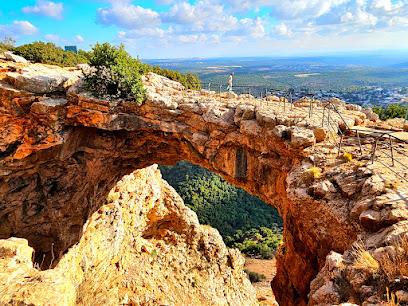
Hamat Tiberias National Park
Explore Hamat Tiberias National Park: A serene escape with hot springs, lush landscapes, and rich history on the shores of the Sea of Galilee.
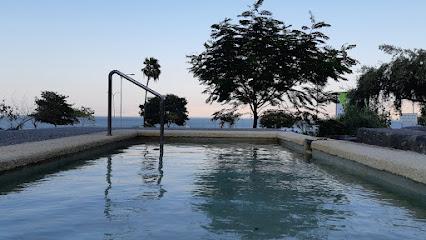
Bet She'arim National Park
Discover the enchanting Bet She'arim National Park in Kiryat Tiv'on, a perfect blend of natural beauty and rich historical significance.
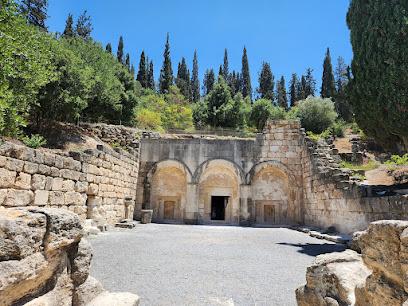
The Tomb Site of the Rambam
Discover the Tomb Site of the Rambam in Tiberias, a revered pilgrimage destination rich in history and spirituality, perfect for reflective moments and cultural exploration.
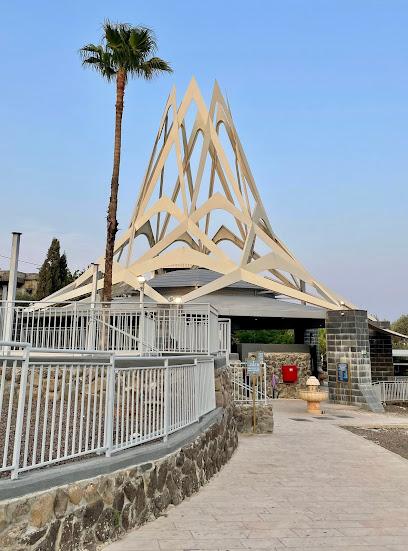
Templar's Tunnel
Discover the fascinating history of the Knights Templar at Acre's Templar's Tunnel, an essential historical landmark for every traveler.
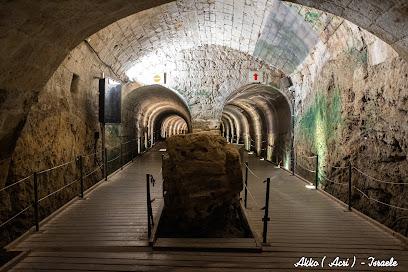
Stella Maris Monastery
Discover the spiritual and historical essence of Stella Maris Monastery, a captivating landmark on Mount Carmel overlooking Haifa Bay.
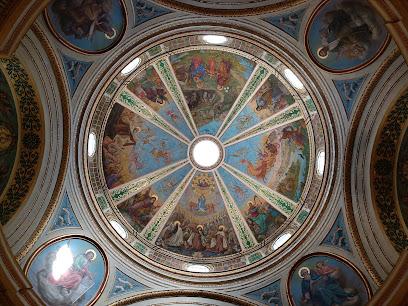
Essential places to dine
Tishreen
Experience the unique blend of traditional Arab flavors and modern sushi at Tishreen in Nazareth – a true culinary delight.
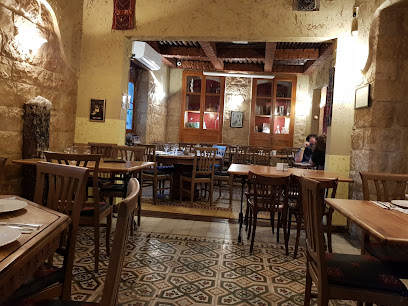
Luna Bistro
Discover authentic Arabic flavors at Luna Bistro in Nazareth - where every dish tells a story of rich cultural heritage.
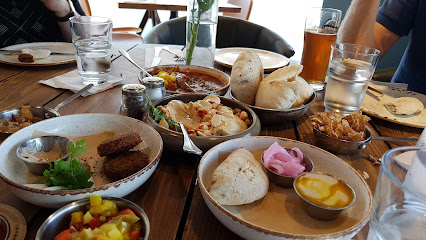
Tishreen Restaurant
Experience authentic Middle Eastern flavors at Tishreen Restaurant in Nof HaGalil – where every meal tells a story.
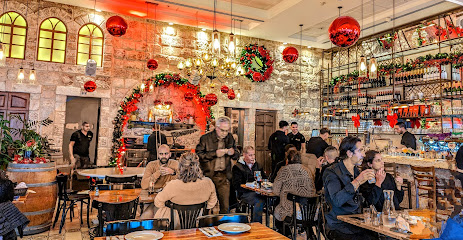
Alreda
Experience authentic Middle Eastern cuisine at Alreda in Nazareth – where every dish tells a story.
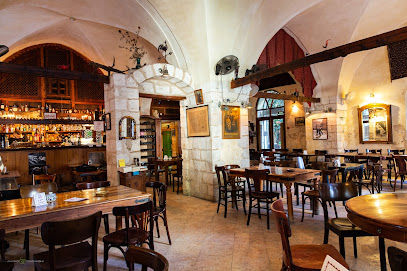
דיאנא נצרת Diana Restaurant
Discover Diana Restaurant in Nazareth: where family-friendly dining meets delicious Israeli cuisine and Mediterranean flavors.
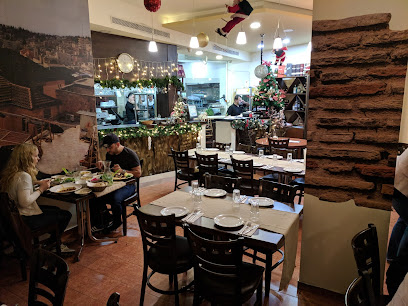
Hummos Afif Saig
Discover authentic Middle Eastern flavors at Hummos Afif Saig in Nazareth – where every bite tells a story.
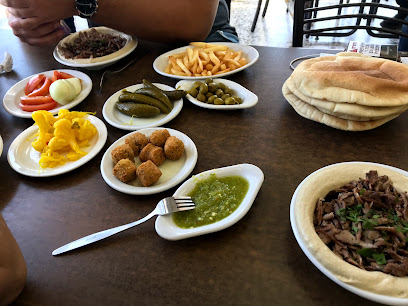
Locanda - לוקנדה נצרת
Experience authentic Arab cuisine at Locanda in Nof HaGalil—where tradition meets flavor in every dish.
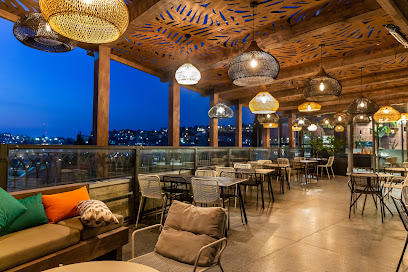
Restaurant Alsiad
Experience authentic local cuisine in Reineh at Restaurant Alsiad—where tradition meets taste in every dish.
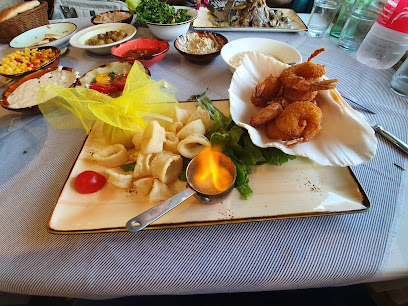
Ronen Italian Kitchen
Experience authentic Italian cuisine at Ronen Italian Kitchen in Nazareth—where tradition meets local flavor.
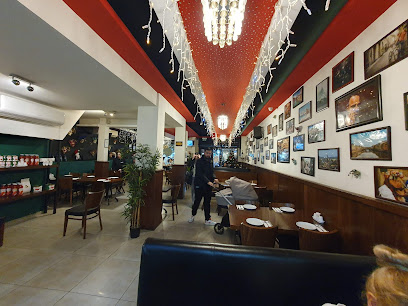
Bayat Restaurant
Discover the flavors of Nazareth at Bayat Restaurant—where local traditions meet contemporary cuisine in a cozy setting.
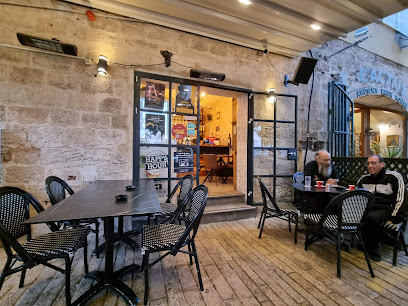
Al-Sheikh Restaurant
Experience authentic Middle Eastern cuisine at Al-Sheikh Restaurant in Nazareth, where every meal tells a story of tradition and flavor.
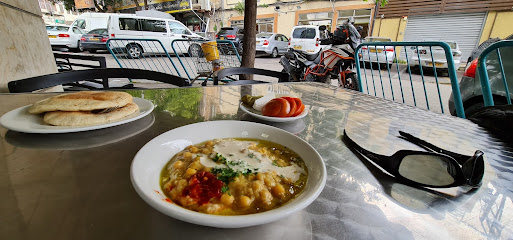
מסעדת הצומת
Experience authentic Middle Eastern flavors at מסעדת הצומת in Nazareth - where tradition meets taste.
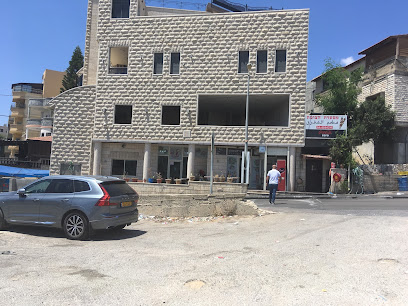
Rosemary Restaurant Cafe
Discover authentic Middle Eastern cuisine at Rosemary Restaurant Cafe in Nazareth – where tradition meets taste.
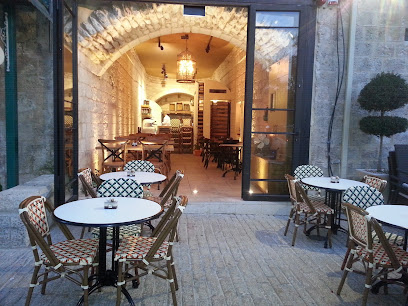
פלאפל ויסאם גבאלי
Savor authentic falafel at Falafel Visam Gabali in Nazareth – where tradition meets taste in every bite.
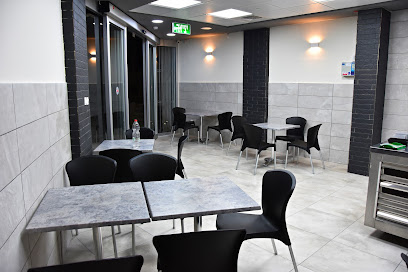
Dewan al-Saraya Old City Abu Ashraf Restaurant
Experience authentic Middle Eastern cuisine at Dewan al-Saraya Abu Ashraf Restaurant in Nazareth's Old City - where tradition meets flavor.
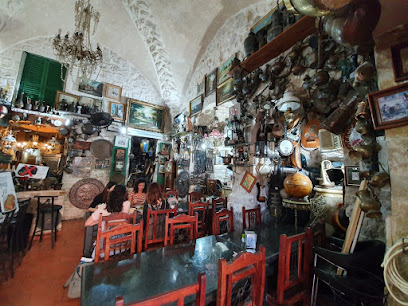
Markets, malls and hidden boutiques
BIG Fashion Nazareth
Explore BIG Fashion Nazareth: A premier shopping destination blending local charm with international brands for an unforgettable retail experience.
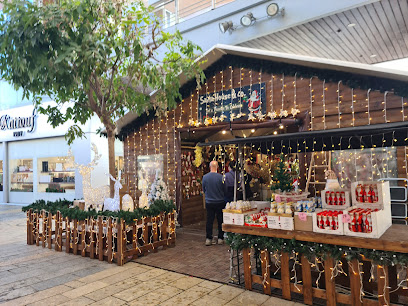
תבלינים מהגליל טריים איכותיים אלבאבור בבית של טוני נצרת
Discover the rich flavors of Galilee at El Babour, Nazareth's premier spice store, where fresh spices come alive in a sensory experience.
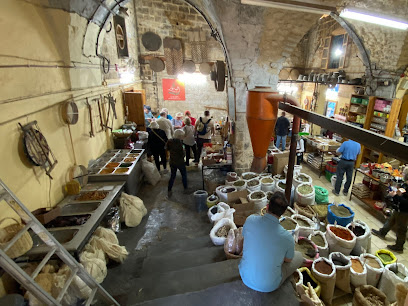
H&M
Explore affordable style and diverse fashion choices at H&M in Nazareth, a must-visit for every shopping enthusiast.
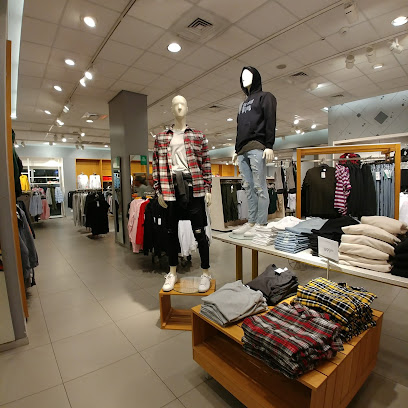
Foot Locker
Explore the ultimate sneaker destination in Nazareth at Foot Locker, where style, comfort, and culture collide seamlessly.

Rosé Roastery Boutique Café
Experience the finest brews and warm hospitality at Rosé Roastery Boutique Café in the heart of Nazareth.
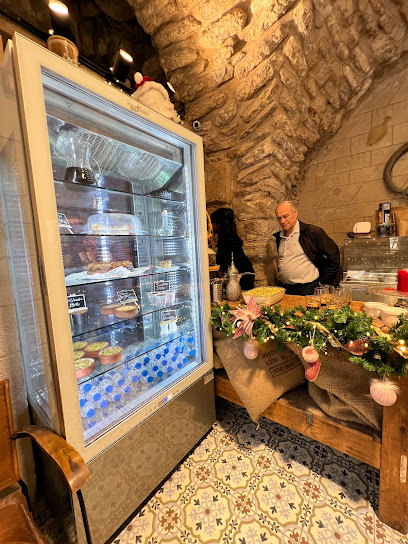
Mazzawi Gifts - Souvenir Shop since 1972
Explore Mazzawi Gifts in Nazareth for authentic souvenirs and local crafts that capture the essence of this historic city.
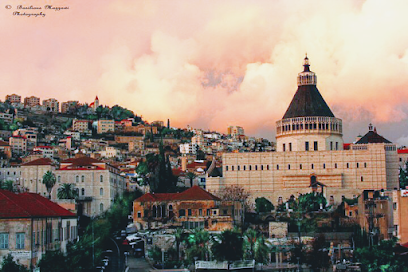
Florentine Nazareth , פלורנטין נצרת فلورنتين ألناصره
Explore Florentine Nazareth for unique gifts and stunning floral arrangements in the heart of this historic city.
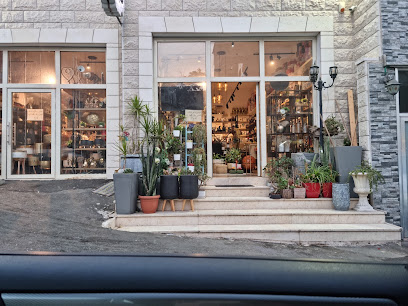
LAKAZA NAZARETH
Explore Lakaza Nazareth for unique home goods and souvenirs that embody the rich culture and artistry of this historic city.
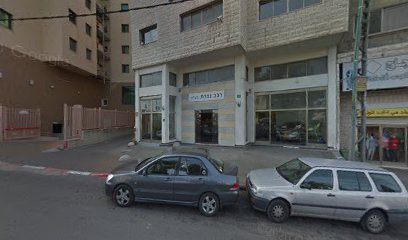
MAC Cosmetics
Explore high-quality cosmetics and beauty services at MAC Cosmetics, a premier destination for beauty lovers in Nazareth's Big Fashion center.
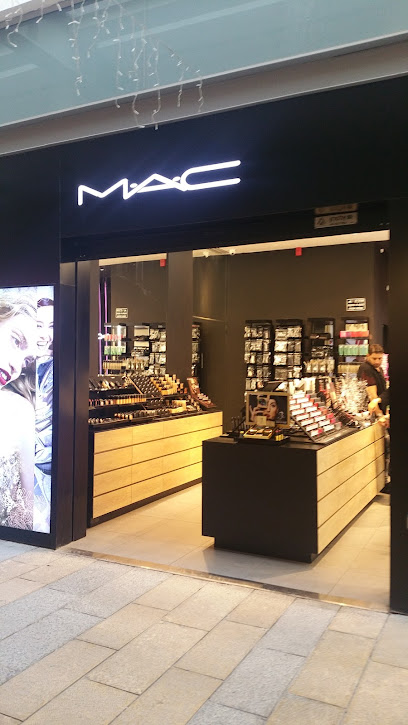
American Eagle Store
Explore the stylish world of American Eagle Store in Nazareth, featuring trendy clothing for every occasion and a vibrant shopping experience.
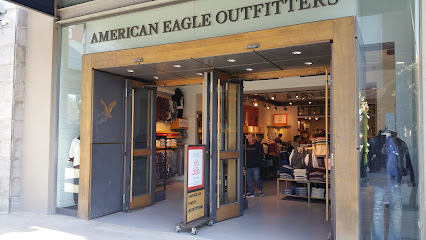
Nike Nazareth
Explore Nike Nazareth: Your ultimate destination for premium sportswear and footwear in the vibrant city of Nazareth.
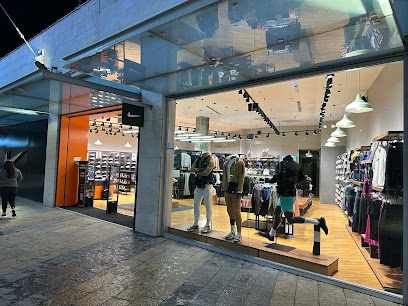
Musmar Pottery
Experience the beauty of handcrafted pottery at Musmar Pottery, where tradition meets artistry in the heart of Nazareth.
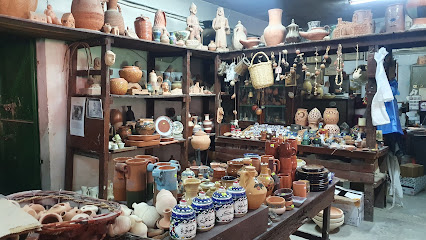
Castro
Discover Castro, the go-to clothing store in Nof HaGalil, offering trendy fashion for every style and occasion.
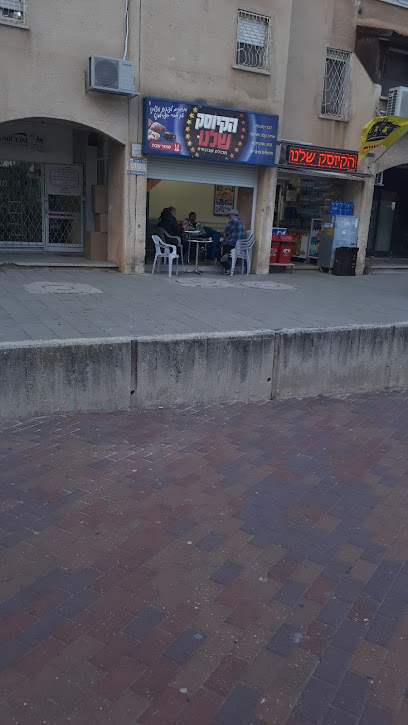
Tereza Handmade Soap
Explore the essence of Nazareth at Tereza Handmade Soap, where organic, artisanal soaps become your perfect souvenirs.
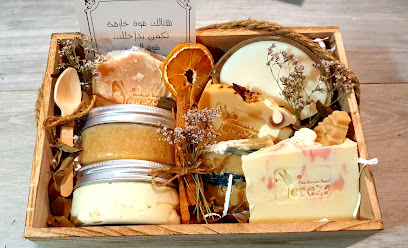
Khaled Jabarin
Explore Khaled Jabarin in Nazareth for a unique blend of traditional and modern fashion that reflects the rich culture of the region.
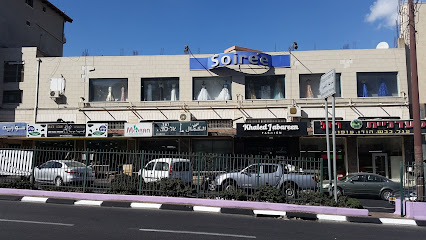
Essential bars & hidden hideouts
Tishreen
Experience a unique blend of traditional Arab cuisine and modern sushi at Tishreen, a culinary jewel in the heart of Nazareth.
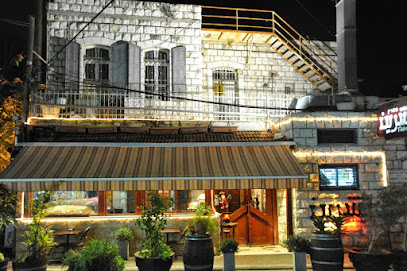
Alreda
Experience the authentic flavors of Nazareth at Alreda, where tradition meets modern dining in a cozy atmosphere.
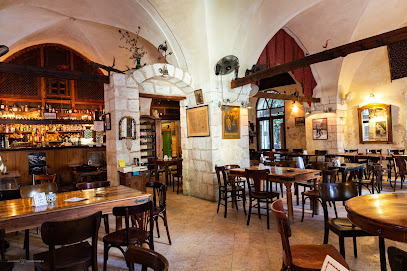
Legacy Nazareth Hotel
Experience the perfect blend of comfort and culture at Legacy Nazareth Hotel, your ideal base for exploring the historic city of Nazareth.
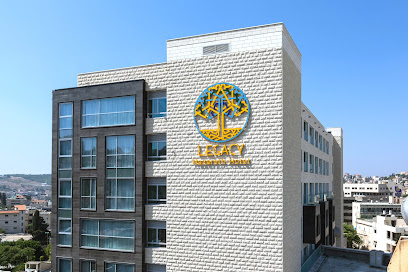
Bayat Restaurant
Savor the authentic tastes of Middle Eastern cuisine at Bayat Restaurant, a local gem in the heart of Nazareth.
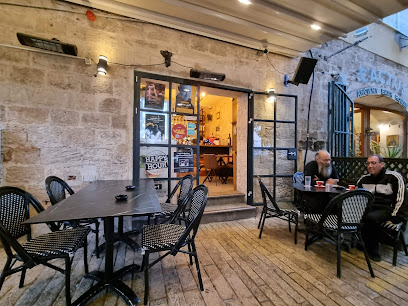
Rosemary Restaurant Cafe
Experience the flavors of Nazareth at Rosemary Restaurant Cafe, where tradition meets modernity in a delightful dining atmosphere.
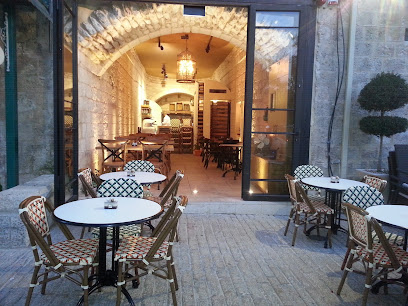
Avra Taverna
Experience authentic Mediterranean cuisine at Avra Taverna, a culinary treasure in the heart of Nazareth, Israel.
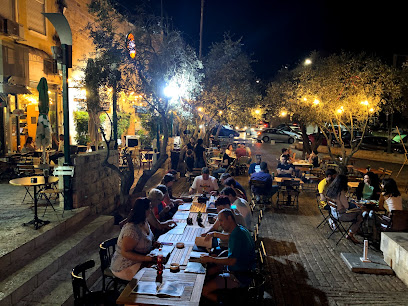
Richard Burger Bar
Discover the best hamburgers in Nazareth at Richard Burger Bar, where freshness meets flavor in a cozy atmosphere.
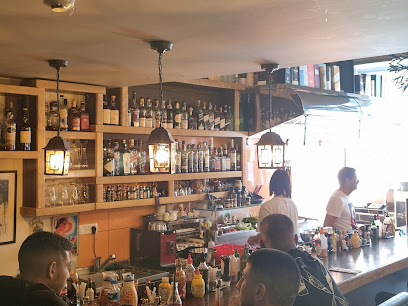
Kahloon Sandwich Bar
Savor the authentic flavors of Nazareth at Kahloon Sandwich Bar, where fresh ingredients meet delicious sandwiches in a vibrant atmosphere.
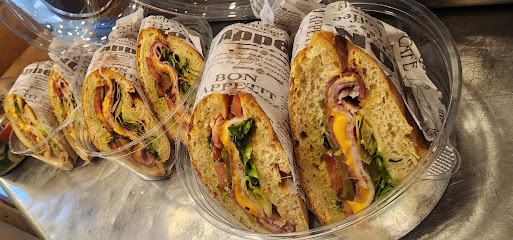
Moon Pub
Discover Moon Pub in Nof HaGalil: A lively pub offering a vibrant atmosphere, diverse drinks, and unforgettable nightlife experiences.
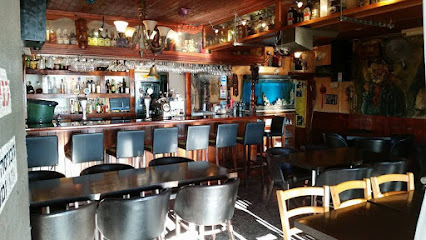
Oud Restaurant
Discover the authentic flavors of Middle Eastern cuisine at Oud Restaurant in Nazareth, where tradition meets taste.
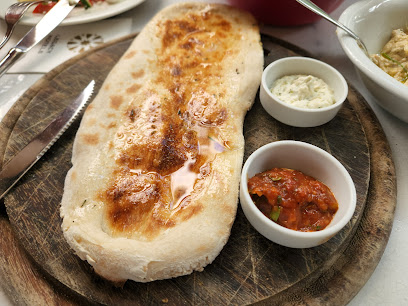
Zeit w Zaytoon Restaurant
Discover the authentic taste of Middle Eastern cuisine at Zeit w Zaytoon Restaurant in the historic city of Nazareth.
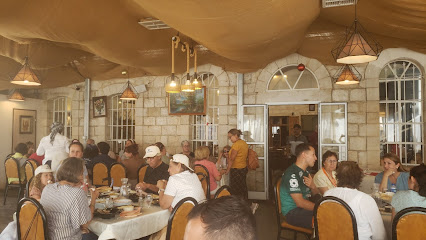
Johnglair’s Home Bar
Discover Johnglair’s Home Bar, a cozy retreat along the Israel National Trail in Nof HaGalil, perfect for unwinding with refreshing drinks and great company.
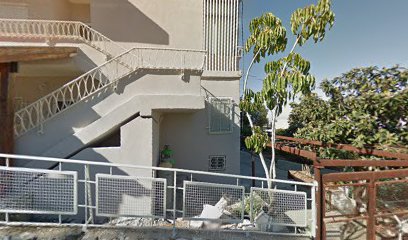
يبكحتك يلي حاسدني
Experience the vibrant nightlife of Nazareth at 'يبكحتك يلي حاسدني', a bar where local flavors and friendly vibes come together.
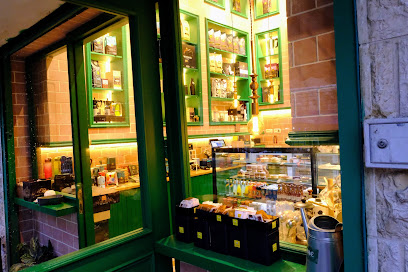
Annai Bar Restaurant
Experience the essence of Israeli cuisine at Annai Bar Restaurant in Nazareth, where every dish tells a story of tradition and flavor.
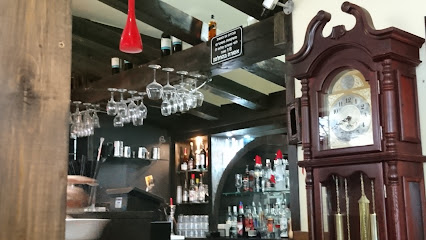
Local Phrases
-
- Helloשָׁלוֹם
[Shalom] - Goodbyeלְהֵיתֵר
[Lehitraot] - Yesכֵּן
[Ken] - Noלֹא
[Lo] - Please/You're welcomeבְּבַקָּשָׁה
[Bevakasha] - Thank youתּוֹדָה
[Toda] - Excuse me/Sorryסְלִיחָה
[Sliha] - How are you?כֵּיצַד אַתָּה?
[Keitzad Ata?] - Fine. And you?טוֹב. וְאַתָּה?
[Tov. Ve'ata?] - Do you speak English??אִתָּה מְדַבֵּר אַנְגְלִית
[Ata medaber anglit?] - I don't understandאני לא מבין
[Ani lo mevin]
- Helloשָׁלוֹם
-
- I'd like to see the menu, pleaseאני רוצה לראות את התפריט, בבקשה
[Ani rotze lir'ot et hataprit, bevakasha] - I don't eat meatאני לא אוכל בשר
[Ani lo ochel basar] - Cheers!לְחַיִּים!
[L'chaim!] - I would like to pay, pleaseאני רוצה לשלם, בבקשה
[Ani rotze l'shalem, bevakasha]
- I'd like to see the menu, pleaseאני רוצה לראות את התפריט, בבקשה
-
- Help!עזרה!
[Ezrah!] - Go away!לְךָ לְהַלֵּךְ!
[Lecha lehalech!] - Call the Police!קרא למשטרה!
[Kra la'mishtara!] - Call a doctor!קרא לרופא!
[Kra la'rofe!] - I'm lostאני אבוד
[Ani avud] - I'm illאני חולה
[Ani choleh]
- Help!עזרה!
-
- I'd like to buy...אני רוצה לקנות...
[Ani rotze liknot...] - I'm just lookingאני רק מסתכל
[Ani rak mistakel] - How much is it?כמה זה עולה?
[Kama ze ole?] - That's too expensiveזה יקר מדי
[Ze yakar m'dai] - Can you lower the price?אתה יכול להוריד את המחיר?
[Ata yachol lehorid et hamachir?]
- I'd like to buy...אני רוצה לקנות...
-
- What time is it?כמה השעה?
[Kama hasha'a?] - It's one o'clockהשעה היא חד
[Hasha'a hi echad] - Half past (10)חצי (עשר)
[Chatzi (eser)] - Morningבוקר
[Boker] - Afternoonצהריים
[Tzohorayim] - Eveningערב
[Erev] - Yesterdayאתמול
[Etmol] - Todayהיום
[Hayom] - Tomorrowמחר
[Mahar] - 1אחד
[Echad] - 2שניים
[Shnayim] - 3שלושה
[Shlosha] - 4ארבעה
[Arba'a] - 5חמישה
[Chamisha] - 6שישה
[Shisha] - 7שבעה
[Shiv'a] - 8שמונה
[Shmoneh] - 9תשעה
[Tish'a] - 10עשרה
[Eser]
- What time is it?כמה השעה?
-
- Where's a/the...?איפה נמצא...
[Eifo nimtza...] - What's the address?מה הכתובת?
[Ma hak'tovet?] - Can you show me (on the map)?אתה יכול להראות לי (על המפה)?
[Ata yachol leharot li (al hamapa)?] - When's the next (bus)?מתי האוטובוס הבא?
[Matay ha'otobus haba?] - A ticket (to ....)כרטיס (ל ....)
[Kartis (le ....)]
- Where's a/the...?איפה נמצא...
History of Nazareth
-
Nazareth's history can be traced back to the Bronze Age, with archaeological evidence suggesting human habitation around 2200 to 1500 BCE. The small village likely existed as part of the broader Canaanite culture, which was characterized by its city-states and trade networks.
-
Nazareth gained profound significance in Christian history as the hometown of Jesus Christ. The Annunciation, according to the Bible, took place here when the angel Gabriel appeared to Mary to announce that she would give birth to the Son of God. This event is commemorated by the Basilica of the Annunciation, one of the city's most visited sites.
-
During the Roman and Byzantine periods, Nazareth grew in prominence. The city became a key pilgrimage site for early Christians. Evidence from this era includes a Byzantine-era church built over what was believed to be Mary's house, and various relics that point to a flourishing Christian community.
-
In the medieval period, Nazareth underwent significant changes. The city was conquered by the Crusaders in the 11th century, who built churches and fortifications. However, it later fell back into Muslim control under the Ayyubid and Mamluk dynasties. Despite these turbulent times, Nazareth remained a pilgrimage site.
-
Under Ottoman rule (1517-1917), Nazareth experienced relative stability. The Ottoman Empire allowed Christian communities to flourish, and many churches were either restored or built anew. The city's population grew as it became a regional hub for trade and agriculture.
-
During the British Mandate of Palestine (1917-1948), Nazareth continued to develop. The British administration introduced modern infrastructure, including roads and schools. This period also saw increased tensions between Jewish and Arab communities, setting the stage for future conflicts.
-
After the establishment of the State of Israel in 1948, Nazareth became part of the new nation. The city has since grown into a bustling urban center, blending its rich historical heritage with contemporary culture. It remains a major destination for pilgrims and tourists alike, drawn by its deep historical roots and vibrant community.
Nazareth Essentials
-
Nazareth is located in the northern district of Israel, in the Lower Galilee region. The nearest international airport is Ben Gurion Airport in Tel Aviv, approximately 110 kilometers away. From the airport, you can take a train to Haifa and then a bus or a taxi to Nazareth. Alternatively, there are direct buses from Tel Aviv's central bus station to Nazareth, which take about 2 to 3 hours.
-
Nazareth has a well-developed public transportation system. Local buses are available and can take you to most parts of the city. Taxis are also readily available and can be hailed on the street or booked in advance. For a more flexible option, consider renting a car. However, be aware that parking in the city center can be challenging. Walking is a great way to explore the old city, as many attractions are close to each other.
-
The official currency in Israel is the Israeli Shekel (ILS). Credit cards are widely accepted in hotels, restaurants, and shops. ATMs are plentiful, and you can withdraw cash in shekels. It is advisable to carry some cash for small purchases, especially in local markets and smaller shops.
-
Nazareth is generally a safe city for tourists. However, like in any city, it is important to stay vigilant. Avoid walking alone at night in unfamiliar areas and keep an eye on your belongings in crowded places. Some neighborhoods in the outskirts of the city have higher crime rates, so it’s best to stick to well-trodden tourist areas.
-
In case of emergency, dial 100 for the police, 101 for medical emergencies, and 102 for fire. There are several hospitals and medical facilities in Nazareth. It is highly recommended to have travel insurance that covers medical emergencies. For minor health issues, pharmacies are available throughout the city.
-
Fashion: Do dress modestly, especially when visiting religious sites. Avoid wearing overly revealing clothing. Religion: Do respect local customs and traditions. When visiting churches and mosques, dress modestly and cover your head if required. Public Transport: Do be respectful and give up your seat to elderly passengers. Don't eat or drink on public transport. Greetings: Do greet people with a handshake. In more religious settings, a slight bow of the head can be a sign of respect. Eating & Drinking: Do try local delicacies and accept food offerings graciously. Don’t refuse hospitality, as it is considered impolite.
-
To experience Nazareth like a local, visit the local markets, especially the Old Market, where you can buy fresh produce and traditional goods. Engage with locals, as they are often friendly and willing to share stories about the city's history and culture. Don’t miss the Basilica of the Annunciation, the largest church in the Middle East, and the White Mosque, which is the oldest mosque in Nazareth. For a unique experience, try some traditional Arab sweets at local confectioneries.
Trending Landmark in Nazareth
-
Church of the Annunciation
-
The Greek Orthodox Church of the Annunciation
-
حلويات الصداقه Al Sadaqa
-
Nazareth Village
-
Tishreen
-
Mary’s Well
-
Alreda
-
Fauzi Azar by Abraham
-
Hummos Afif Saig
-
Basilica of Jesus the Adolescent
-
St. Joseph's Church
-
Michel House Boutique Hotel בית מישל بيت ميشيل
-
Casa Nova
-
Villa Nazareth B&B
-
Liwan Culture Cafe
Nearby Cities to Nazareth
-
Things To Do in Tiberias
-
Things To Do in Beit She'an
-
Things To Do in Haifa
-
Things To Do in Akko
-
Things To Do in Acre
-
Things To Do in Safed
-
Things To Do in Zikhron Ya'akov
-
Things To Do in Umm Qais
-
Things To Do in Nahariya
-
Things To Do in Caesarea
-
Things To Do in Hadera
-
Things To Do in Rosh HaNikra
-
Things To Do in Irbid
-
Things To Do in Netanya
-
Things To Do in Tyre











